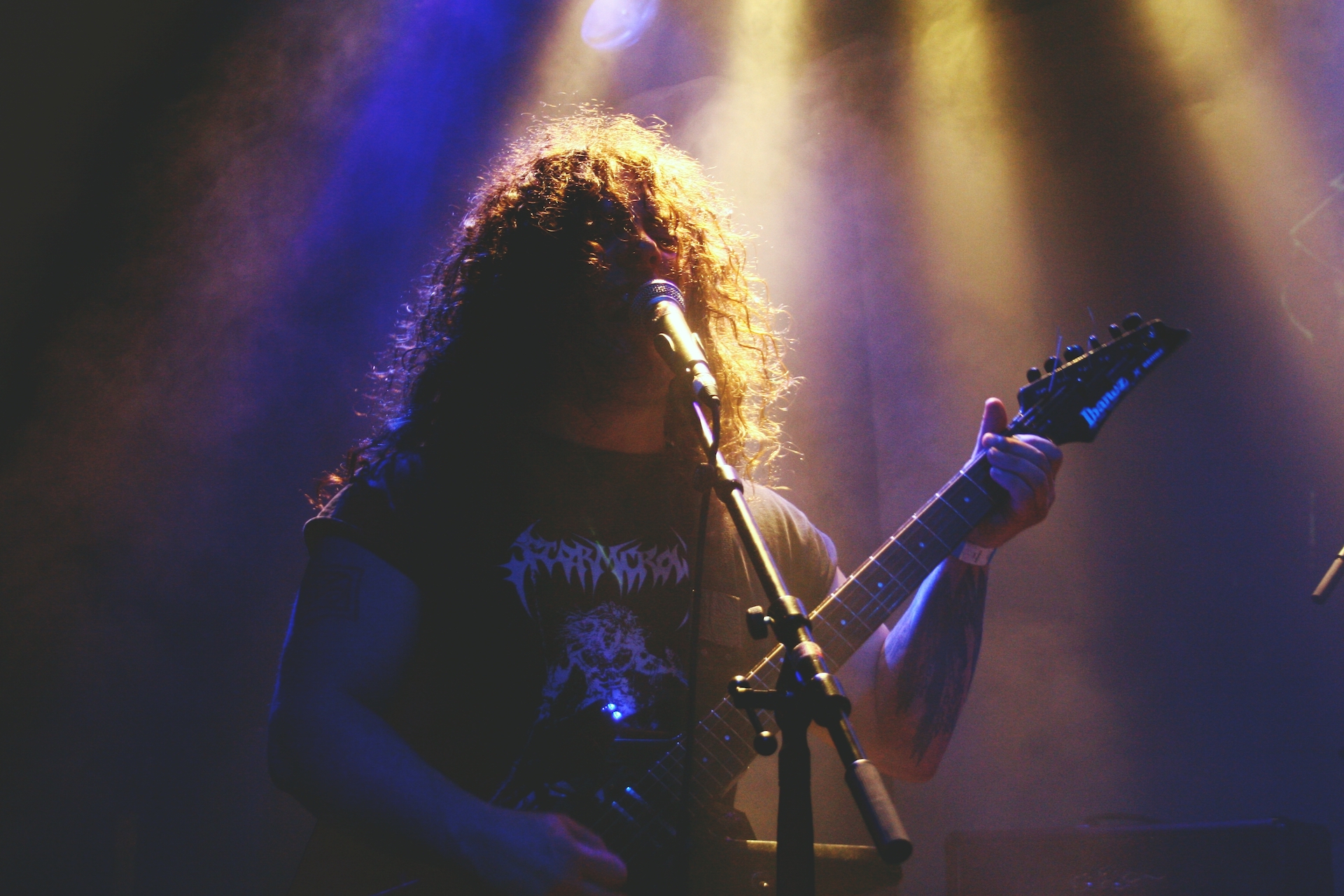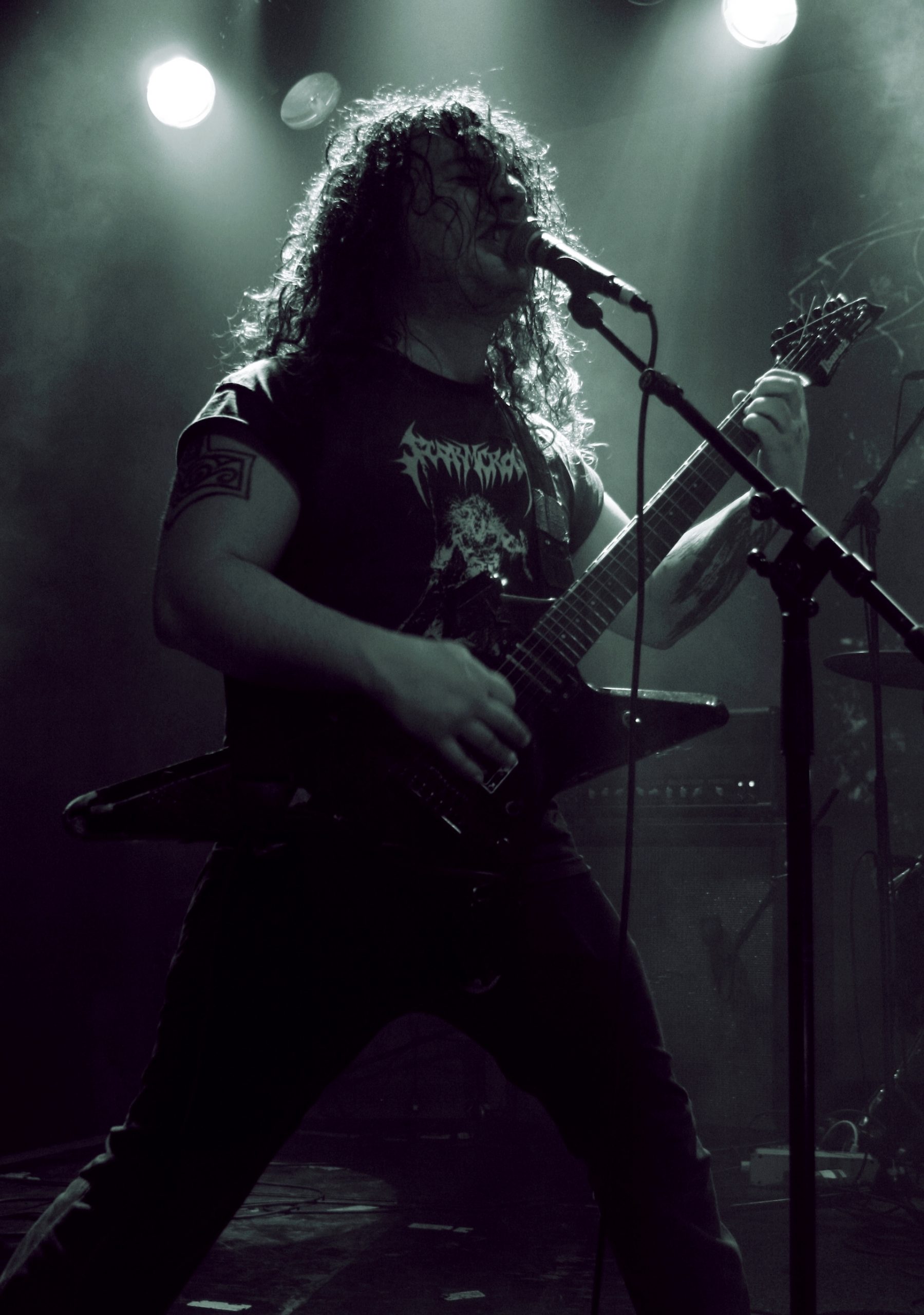Roadburn 2008, Saturday 19 April, 013 Green Room
It happened 13 years ago, but for those of us who were lucky enough to have been there, the first Wolves In The Throne Room appearance at Roadburn remains absolutely seared into our memories. Rarely has a band made such an impact, especially a rather young and inexperienced band (at the time), and at a festival that wasn’t exactly known to host the genre they mostly inhabit. It was a converging of unlikely circumstances that forever changed both artist and event.
“That was such a pivotal show for Roadburn,” says Walter, the festival’s artistic director, also still in awe of that mythical performance all these years later. “It totally opened our doors for the more black metal side of things: the more ‘organic’ kind of black metal, as it was often called at the time. That show single-handedly completely paved the way for that sort of thing in the following years of the festival, and it’s obvious how important that kind of music became at Roadburn.”
Of course, for pivotal moments to occur, the audacity to take risks also has to be there. How was the decision to feature an artist that, for all intents and purposes, didn’t really seem to fit the festival’s orientation at that time? Walter ventures that Wolves In The Throne Room’s Two Hunters album made quite a fuss in the underground, so there was a lot of talk about them, even in Roadburn circles. But you get the feeling that, like some of the best decisions made by Roadburn, it was really a gut thing on the part of Walter. Wolves made sense for Roadburn on a primal level, as if they had mutual ancient ancestors and were connected by blood without even knowing it. And the plunge was taken by both parts without hesitation.

“We were so green at that point, and so deeply punk and underground in our orientation, that we didn’t know anything about the festival,” laughs WITTR drummer Aaron Weaver. “Just the concept of going to Europe and playing festivals was like going to outer space: it felt like uncharted territory to us. But it also felt like something special and important. It was our first fly-in, our first one-off show at a festival. Nowadays, we know what to expect and it’s part of what we do, but at that time it was an alien experience. At the same time, though, as soon as we got there, we immediately felt at home.”
“It was Andreas Kohl from Exile On Mainstream who knew the guys and confirmed how good the band was live, and we trusted him,” Walter remembers. “We asked him to talk to them and see if they’d be interested in playing Roadburn. I think in a way for them it was also a breakthrough in Europe. The festival broke new ground that year, and WITTR were doing the same for black metal: everything came together in that single show. It was obvious for us that they were a Roadburn band, even if, at the same time, we were still very much rooted in stoner, doom and post-rock.”
This acceptance was felt by the band, and created an instant connection that endures to this day. “It was so welcoming, even to a bunch of complete outsiders like we were,” Aaron offers. “What has been created there by Walter and everyone else, the Roadburn community, is so special, and unique, and family-oriented. In the best sense of the word, it has a true cult spirit, in that everyone there is spinning in the same wavelength, and tapped into the same source of energy and of spirituality. There’s a similar vision. Everyone dreams the same sort of dreams. I almost want to call it a medicine lodge. Cultures always have these sorts of secret societies, where people who are in some way united spiritually come together to get into it, get weird. We immediately felt that Roadburn was a spot where we were understood, despite all of our weirdness.”
Maybe even because of their weirdness. After all, Steve Von Till has endearingly described the Roadburn community, be they bands, fans or staff, as the “freaks in the corner”.
“I think we also felt that something was forming, perhaps even more clearly because of that difference in style between us and the other bands on the bill that year,” reasons Aaron. “It was a formative time for Wolves In The Throne Room and also for Roadburn – obviously in the following years the festival has expanded beyond any kind of genre: it’s now something much bigger than an event attached to any genre or style.”
Of course, none of these good vibes would have mattered much if the show wasn’t a gigantic thunderstorm of unforgettably epic proportions, but that’s exactly what the band delivered. You can still witness it for yourself on the Live At Roadburn album which ensued – it was one of the first in this series – or on several quality videos of the event that still populate the internet. Aaron confesses that he rewatched a couple of these videos before our chat, and even he was impressed.
“Tight is not really our thing, but I was struck by how wild it looked,” he says in awe. “It’s still like that, but I think that at that time our band was really tapped into a really wild and out of control energy. That’s something I noticed, and I think that’s what got to the people who watched it as well: that the music is constantly on the edge of falling apart. It’s like we’re all physically pushed to a breaking point, with the harshness and the physicality of the playing, and that’s right there on display in those videos. It’s that spot right before everything shatters into pieces that sounds good. That’s not the usual metallic approach, metal is usually more methodical, there’s more headroom, but what we were doing, and I think we still do, there’s no headroom at all. It’s just pushed right up to the ceiling.”
Walter remembers a similar feeling, and the lingering effects of it: “I remember the excitement in the air about that show, people were talking about it so much afterwards. When it was over and people were coming out, I was outside and I felt it: it was palpable, the excitement coming from that room. It was noticeable something had happened. It’s a landmark that changed everything for us. After that show, we started to book a lot more experimental, heavier bands for Roadburn. We dived straight into the black metal world, and later on we explored the genre even more, like with the Icelandic scene. That show was the starting point for Roadburn to embrace much more extreme music, from black to death metal, and other genres: it all started there. It inspired us to keep diving into those worlds and cherry pick all the bands we thought would be suitable for the festival.”
Wolves In The Throne Room would return a couple of times more to Roadburn after 2008, and hopefully will still chalk up a few more appearances in the future. It’s another case of a relationship that was formed and of two entities who still continue to grow together.
“Roadburn feels like a weird alternate dimension,” Aaron says with a laugh. “Every time we’ve been there since, the feeling is similar. Although I will say that as we became more seasoned, it also became easier to be fully present, maybe notice more what’s going on, instead of being in that state of barely holding it together, barely knowing your way to the stage, which is how we were back in 2008.” Fortunately, their music still remains, as it should be, right on the edge of being uncontrollable. Let’s keep it that way.

